why pro-torah?
Learn how God’s law provides freedom, and how Christ through the Holy Spirit enables us to move beyond sin not by abolishing the law, but by having God’s instructions written on our heart and mind. Learn how the Torah was given “that we might find life” (Lev. 18:5) and explore the beauty and relevance of God’s commandments in following Christ. Explore resources by topic, scripture or author from a pro-torah perspective.
Pro-torah: (pro) In favour or support of (torah) God’s “instruction,” “teaching,” and “law.” New Interpreter’s Dictionary of the Bible.
Browse by Scripture:
Matthew:
Matthew 5:17-20 – A Thorough Investigation
According to Yeshua the Messiah’s words here in Matthew 5:17, delivered within His Sermon on the Mount in Matthew chs. 5-7, the Savior clearly states what His views are regarding the Torah of Moses. Along with Psalm 23 and the Ten Commandments (Exodus 20:1-17), Matthew 5-7 includes the Beatitudes (Matthew 5:2-12) and the Lord’s Prayer (Matthew 6:9-13), the four passages together composing the most frequently read and valued sections of the Bible for most evangelical Christians. Yeshua’s statements about the Torah are not at all hidden away in some obscure place. Jesus says very plainly that His purpose was not to “abolish” the Torah or Law of Moses, but to “fulfill” it. Gain a deeper understanding of Matthew 5:17-20 from a pro-torah perspective.
Matthew 5:17-20 Yeshua’s View of the Law
What did Yeshua (Jesus Christ) have to say about God’s Commandments? Was it His intention to abolish the Law of Moses? Investigate Matthew 5:17-19.
Romans:
Romans 14 and the Sabbath Commandment
Many use Romans 14 to argue that “all days are now the same” according to God, and that the Sabbath is no longer important, but the context of this passage — particularly its context within second temple Judaism.
Did God “Do Away” With the Law in Romans?
Q and A with Dr. Michael Brown. How do you reconcile the seemingly contradictory messages from Romans 10:4 and Romans 3:31?
1 Corinthians:
1 Corinthians 10:23 – What is Lawful?
The statement, “All things are lawful so we can edify the body” is an extreme stretch of what 1 Corinthians 10:23 communicates. This verse repeats the slogan “Everything is permissible” (NIV) or Panta exestin (Pa,nta e;xestin), which Paul has refuted earlier in 1 Corinthians 6:11, chastising various Corinthians for thinking that they could get away with certain sinful activities, which he has said is something not at all profitable or useful. Later on in the letter of 1 Corinthians, more has to be communicated, and it surely behooves a responsible Bible reader to view 1 Corinthians 10:23 in light of the wider cotext of 1 Corinthians 10.
1 Corinthians 7 | Does The Torah Apply to Gentiles?
On the whole, 1 Corinthians 7:17-24, is a passage of elusiveness for most of today’s individual Messianic Believers. Bits and pieces of 1 Corinthians 7:17-24 have been quoted here or there by various writers and teachers, but for the most part it tends to be something skipped over by Messianic Bible readers, much less probed for its theological and philosophical significance. 1 Corinthians 7:17-24 has, however, been examined in some detail by various leaders within Messianic Judaism, and perhaps because of some of the conclusions drawn by them, 1 Corinthians 7:17-24 has been widely avoided or flat ignored by those within the more independent, Hebrew/Hebraic Roots Messianic sectors. The challenges presented by 1 Corinthians 7:17-24, are reflective of a more widescale avoidance, on the part of most of today’s broad Messianic movement, to examine the Epistle of 1 Corinthians—a letter, which in some ways, is even harder to understand than the Epistle to the Galatians.
Galatians:
Galatians 5:2-3 | Falen From Grace?
It is true that in various sectors of Messianic Judaism, particularly those which promote a bilateral ecclesiology of the Kingdom of God composing two sub-groups of elect, Israel and “the Church,” that it is believed that only Jewish people are really supposed to follow the Torah. Non- Jewish Believers can keep the Torah if they wish, but it is not required or really expected of them. Galatians 5:2-3 is offered as a proof text in support of this position, as the non-Jewish Galatians who would be circumcised in the First Century, would apparently make themselves obligated, the same as any Jew, to keep the Torah.
Galatians 3:23-25 Meaning of ‘Schoolmaster’ or ‘Pedagogue’
Daniel Botkin provides an understanding definition of ‘pedagogue’ as contained in Galatians 3:23-25: “But before faith came, we were kept under the law, shut up unto the faith which should afterwards be revealed. Wherefore the law was our schoolmaster to bring us unto Christ, that we might be justified by faith. But after that faith is come, we are no longer under a schoolmaster.”
Ephesians:
Is Paul Opposed to the Torah (Law) in Ephesians 2:14-15?
Ephesians 2:14-15 are challenging verses for many within the Messianic movement, with few being able to even respond to the pastor’s remark “The Law was abolished in the flesh of Christ.” If in Ephesians 2:14-15 the Apostle Paul is saying that Yeshua the Messiah abolished the Torah of Moses, then this would be in flat contradiction of the Savior’s own words regarding fulfillment of the Torah (Matthew 5:17-19)—yet no one can deny the significance of how in Him a “one new humanity” (NRSV/CJB/TNIV) composed of Jewish and non-Jewish Believers must emerge, a clear testament of His grand salvation for all people. We need to look at Ephesians 2:14- 15 a bit more closely, and keep in mind what kind of law is being specifically addressed here. Is God’s Torah actually a cause of enmity or hostility for people, or might something else be in mind?
Ephesians 2:14-15: What has been abolished?
Ephesians 2:14-15 are challenging verses for many within the Messianic movement, with few being able to even respond to the pastor’s remark “The Law was abolished in the flesh of Christ.” If in Ephesians 2:14-15 the Apostle Paul is saying that Yeshua the Messiah abolished the Torah of Moses, then this would be in flat contradiction of the Savior’s own words regarding fulfillment of the Torah (Matthew 5:17-19)—yet no one can deny the significance of how in Him a “one new humanity” (NRSV/CJB/TNIV) composed of Jewish and non-Jewish Believers must emerge, a clear testament of His grand salvation for all people. We need to look at Ephesians 2:14- 15 a bit more closely, and keep in mind what kind of law is being specifically addressed here. Is God’s Torah actually a cause of enmity or hostility for people, or might something else be in mind?
Colossians:
What was ‘nailed to the cross’ in Colossians 2:14-16?
Colossians 2:14 is the common verse that is quoted by many Christians to assert that “the Law of Moses was nailed to the cross of Jesus Christ.” But is this truly what is being said in Colossians 2:14? Did the Torah truly get nailed to the cross, with its high and holy standard of conduct nullified for the post-resurrection era? Could the idea that “the Law was nailed to the cross,” be little more than a sound byte that fails to take into consideration the actual issues present in the surrounding cotext?
Browse by Topic:
The Apostle Paul:
Epistles of Paul from a pro-Torah perspective
An excellent and highly detailed study in the epistles of the Apostle Paul from a Pro-Torah perspective. In this classic studio recorded series by Ronald L. Dart, each of Paul’s letters is studied verse by verse in chronological order and evaluated in the light of the record in Acts. We hope you’ll enjoy your study on the “Epistles of Paul.”
What do Paul’s Letters Really Say?
Marcion was an early Christian bishop who taught that the entire Old Testament should be rejected, and that Paul was the only apostle that could be trusted. Is the ghost of Marcion still at large in the Church today?
Christmas and Easter:
Passover vs. Easter: Does it really matter?
As a follower of Jesus, where are we to turn to when trying to explain Easter? Do we find passages in the Bible that give us solid grounds for defending this holiday or must we look elsewhere? Let’s take a closer look at one of the most widely celebrated Christian festivals, and discover how it relates to Jesus.
My thoughts on Christmas
As a follower of Christ, I believe there are only three options when reviewing the customs and traditions of Christmas: 1) Remove Christ from Christmas, 2) Remove man-made traditions (of questionable origins, as indicated in the paragraphs below) from Christmas, or 3) abandon man-made traditions associated with Christ and adopt God’s Holy Days.
Feast Days (Christian Holy Days):
Christian Holidays (Holy Days) By Ronald L Dart
Everybody knows there are holidays mentioned in the Bible. But what are they? The holidays that are mentioned in the Bible are usually dismissed as Jewish. But did you know the New Testament Church still celebrated these holidays after Christ’s ascension? Walk through the Christ centered significance of the holidays in your Bible. This series goes in depth to each of the ‘Feasts of the Lord’, ‘Holy Days’, or ‘Sabbaths’ as listed in Leviticus 23 to include: The Sabbath, Passover, Feast of Firstfruits, Feast of Weeks (Pentecost), Feast of Trumpets, Day of Atonement, and the Feast of Tabernacles. Dart also discusses Christmas and Easter, addressing the questionable origins of these man-made traditions.
A Fresh Look at the Feast of Tabernacles
Why do we observe the Feast of Tabernacles? Is it just in commemoration of Israel and their exodus? What is the symbolism – past, present, and future? Temporary dwellings – searching for the city to come. When will we be home? A very powerful sermon about what God is doing and our role in it.
God’s Law:
The meaning behind God’s Law
Many people ask, “Which Old Testament laws should we keep today?” For example, some may ask whether or not it is right to wear a wool and polyester suit; if this is a violation of the Old Testament law that forbids a garment of mixed fabric, such as wool and linen, to come upon our flesh (Deuteronomy 22:11). Some are concerned as to whether or not the elastic around the band at the top of socks would constitute the mixing of fabrics together; there are people that feel they need to take the elastics out of socks.
Why is it people play “hopscotch” through the Old Testament, keeping this law but not keeping that one right next to it? What is the criteria that we use to decide that we would do this but we would not do that? Others ask us, “Well, is this law (pointing to a passage from scripture) required for salvation?” Well, the answer is “No, that law is not required for salvation. But it is a sin if you do not do that law.”
The Objective of God’s Law
We look at Psalm 119 to answer the following questions: Why was the law given? What is its purpose? What is the objective of the law? The law is intended to keep us from being reproached. It advises. It gives us liberty, provides good judgment, understanding and peace. It leads us to Jesus Christ. It endures forever, every jot and tittle. Unfortunately, it has often been used by men to control people. Grace is not the opposite of the law, it does not void the law; it gives exceptions to the law. The role of the Old Testament for the Christian. A discussion on legalism and salvation.
Grace:
A Doctrine of Grace by Ronald L Dart
Are we to find a doctrine of grace within the Old Testament? Is it really Law vs Grace or has there always been a doctrine of grace? Learn how Grace has always been a part of the picture throughout the entire Bible, and how Law is not in contraction with Grace.
Holiness:
What does it mean to be “Holy”?
When’s the last time you heard a sermon on the doctrine of holiness? It doesn’t sound terribly interesting. “Holy” is sort of apart from men; men are over here and things holy are over there. And it’s a word that’s synonymous with “divine,” it’s a spiritual sounding thing but I’m not all that sure what it means. But, if we understand Paul correctly, without holiness (whatever it is) we shall not see the Lord.
The Holy Spirit:
Filled with the Spirit
Does your spiritual life need rejuvenation? The apostle Paul talks about being filled with the spirit. Listen to Ronald L. Dart on the Holy Spirit.
Walking by the Spirit: A Study in Galatians 5
Perhaps one of the most misunderstood books of the Bible is the Epistle to the Galatians written by Rav Sha’ul (Paul), the so-called Apostle of Liberty. As Shimon Kefa (Peter) wrote:
“And regard the patience of our Lord to be salvation; even as our beloved brother Paul also according to the wisdom given unto him who wrote unto you; as also in all his epistles, speaking in them of these things; in which are some things hard to be understood, which they that are unlearned and unstable wrest, as they do also the other scriptures, unto their own destruction.” 2 Peter 3:15-16
Morality:
Moral Decay in the Church by Ronald L. Dart
The unity Paul speaks of is inclusive (“How do we include everybody?”), not exclusive (“What people do we need to kick out?”). In Ephesians 2, what was the “law of commandment” and the “wall of separation”, and what was abolished by Jesus? How to work toward unity today. Roles of the leaders toward unity. Unity by coercion will not last; authoritarianism divides and is contrary to the Ephesian instruction. Every joint has its role – no exclusiveness.
The Sabbath:
The Sabbath FAQ
Is the Sabbath relevant for Christians? Wasn’t the calendar changed? Didn’t the early church meet on the first day of the week? Find out more…
Examining arguments for and against the Sabbath
Most people, who claim to be religious, whether they are Jewish or Christian, believe in keeping the Ten Commandments. That is a given. The Fourth Commandment is the one commandment that is called into question consistently. Even the people who believe that the Ten Commandments were done away with, believe that nine of the Commandments were reinstated in the New Testament. They have some convoluted discussion or argument about how that actually works.
Salvation:
How Many Ways of Salvation?
Was the way to salvation different depending on nationality? Race? Circumcision? Works? Explanation of “middle wall of separation” and what ordinances Jesus abolished (from Ephesians 2). Explanation of the burden that neither us nor our fathers could bear (from Acts 15). Keeping the law with no faith is worthless. Having faith and not keeping the law is a contradiction. Explanation of John 1:1 “The Word was with God and the Word was God.” Jesus came to reveal the previously-hidden Father. Concludes with the one way to salvation, Old Testament and New Testament.
Slavery:
Does God Approve of Slavery?
The most significant event of the entire Torah is the Exodus of Ancient Israel from Egypt, and the deliverance of the Israelites from their servitude to Pharaoh. Moses admonished the people in Exodus 13:3, “Remember this day in which you went out from Egypt, from the house of slavery; for by a powerful hand the LORD brought you out from this place.”There is no doubting the fact that Ancient Israel was removed m’beit avadim (מִבֵּ֣ית עֲבָדִ֔ים) or “from the house of slavery.”

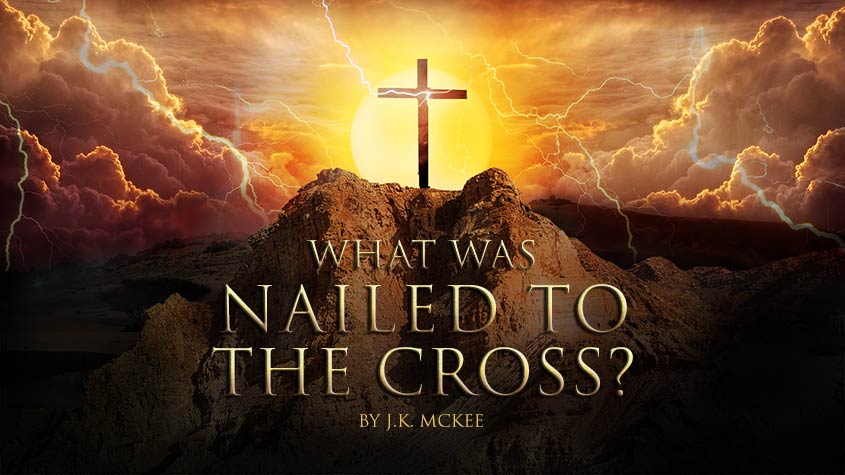
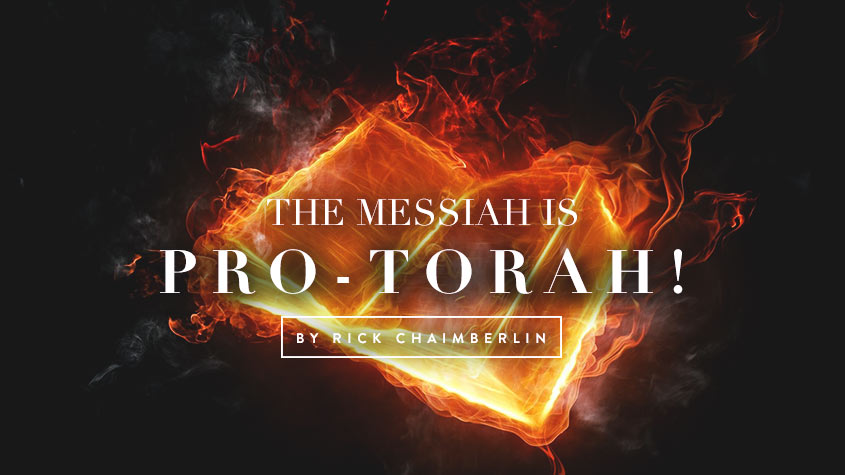
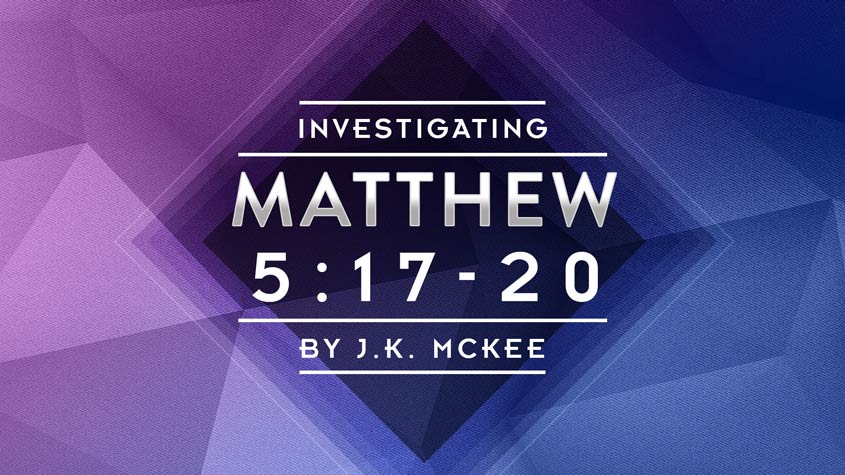
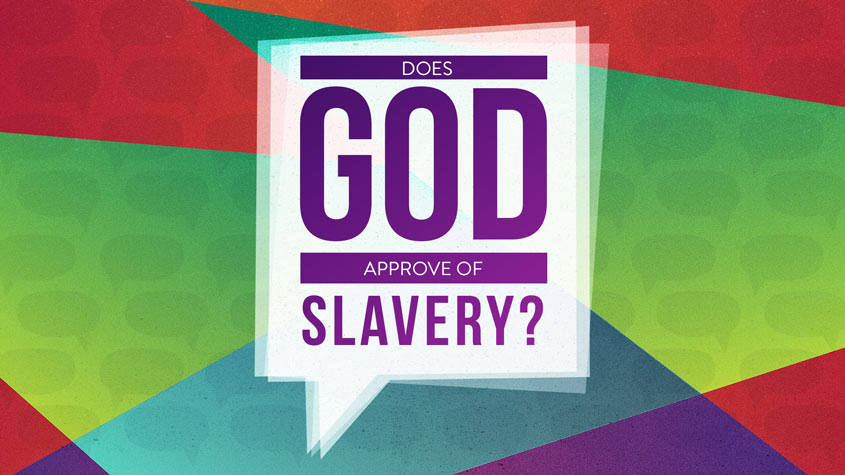


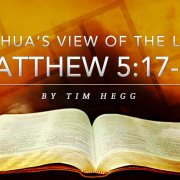
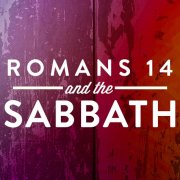
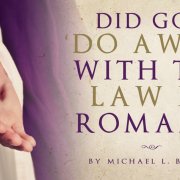
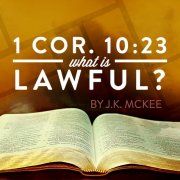


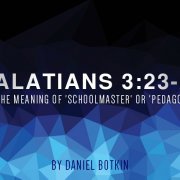

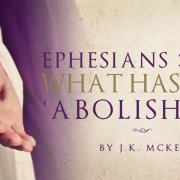
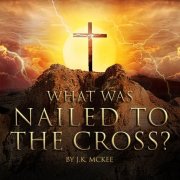





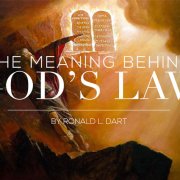
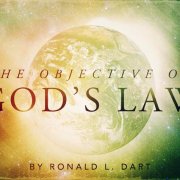
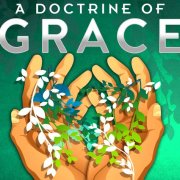


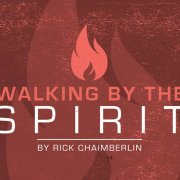
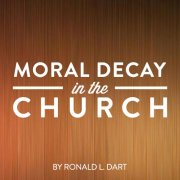
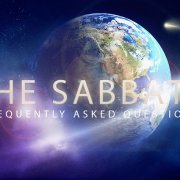



Recent Comments: